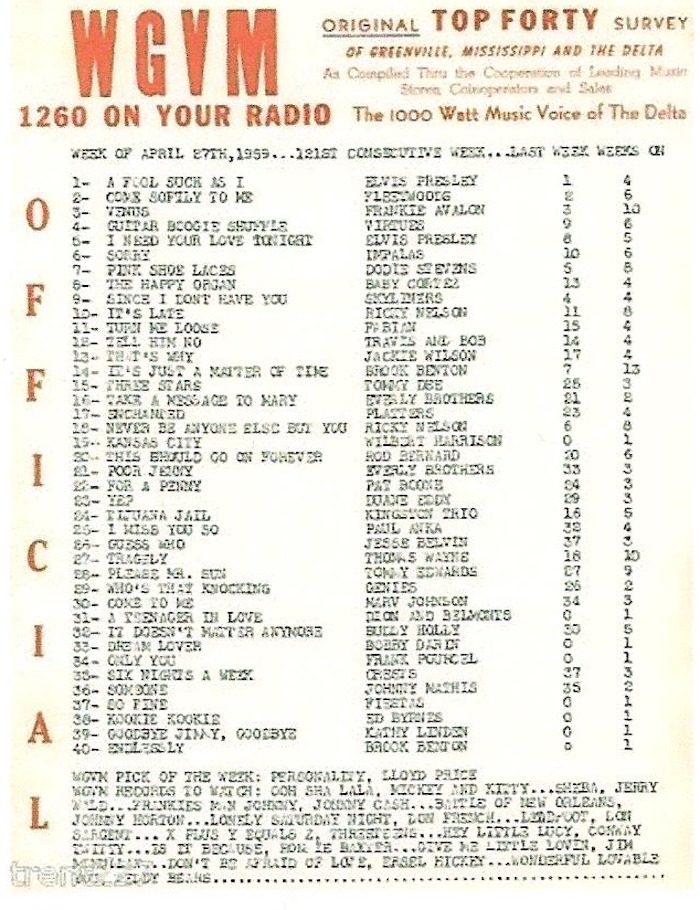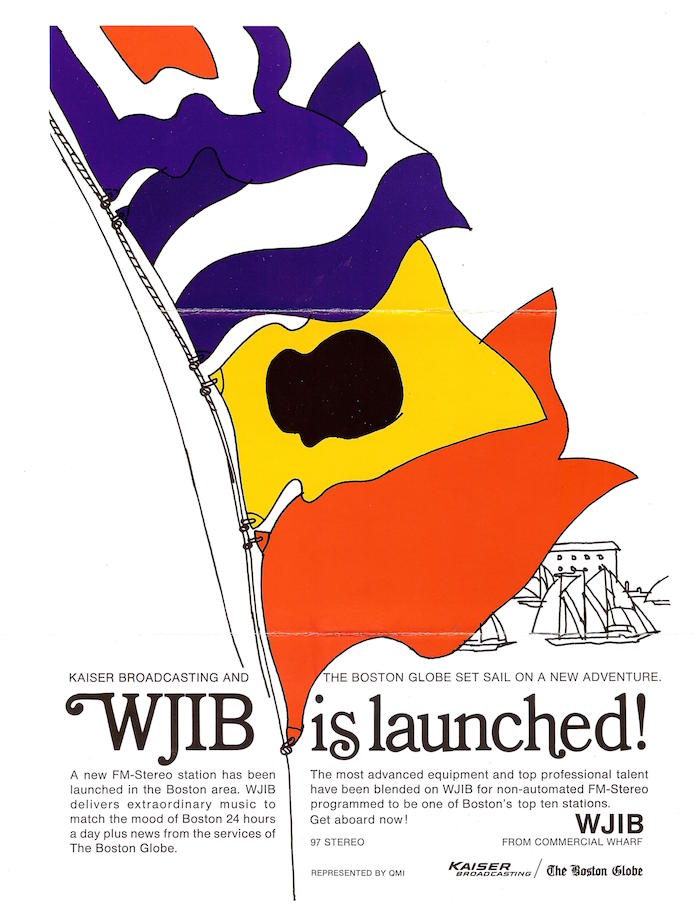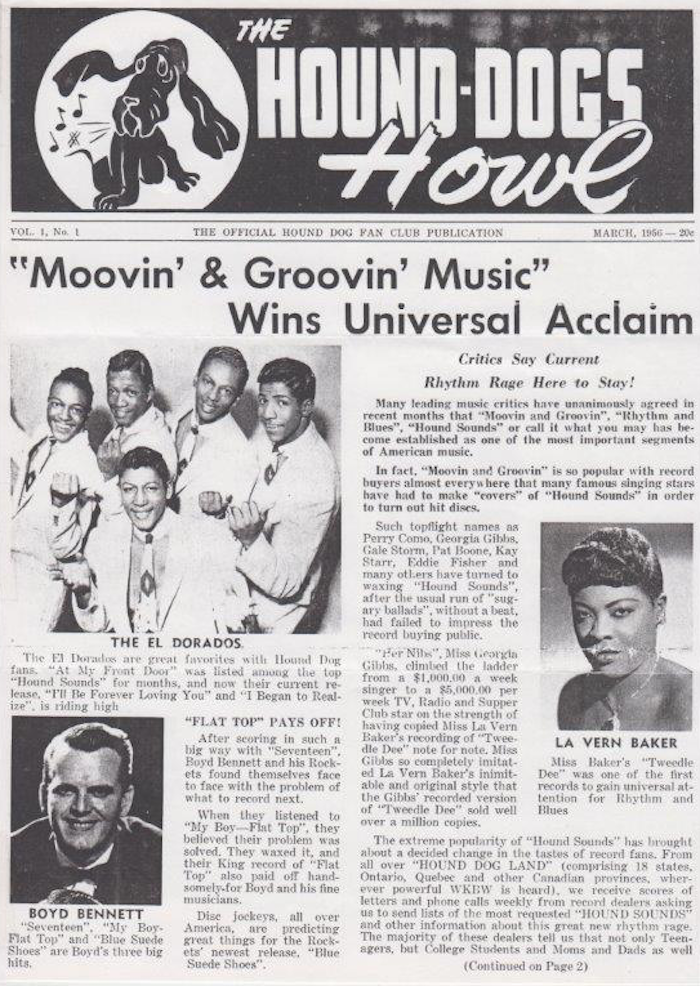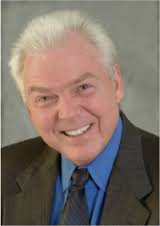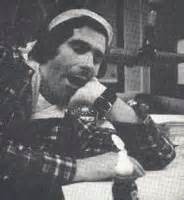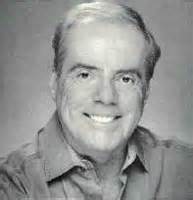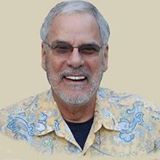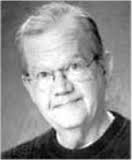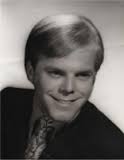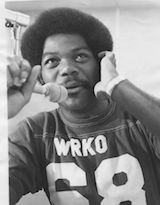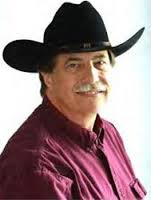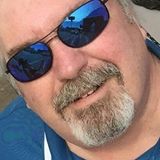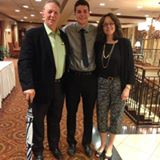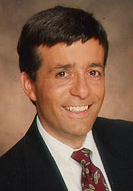


6-20-16
by Rollye James
and
Claude Hall
Ken Dowe: “My opinion is that ‘radio’ is still viable. But, it's boringly inflexible. Today's
programmers are trying to re-ignite dead ideas. Seems to me it's similar to a chef's inattention
to a sour-dough ‘starter.’ Left unattended and/or not freshened, it doesn't work anymore. Sour
dough ‘starters’ must be refreshed regularly to maintain balance and size, and you need to use
or discard part of the starter each time you feed it. Radio doesn't now seem to know that ages
old success story. Discard the old, and create the new.(You may not like these guys, but in
their new world they have been huge successes. Gordon McLendon, Bill Stewart, Roger
Ailes, Limbaugh, Stern)
“Here's an example: If I were to purchase a small AM station in a medium sized market, that
would be disaster, right? Not necessarily. What if the programming was changed to a ‘gossip’
format. (Just an example.) A talk-a-thon driven by ‘interesting’ hosts (‘interested’) with topics
ranging from Hollywood to the Orlando terrorist situation. Newsy information bantered
between the hosts and callers.
“The primary skill to host? Just entertaining and bright conversationalists. Actors?
Professors? Comedians? Lawyers? ‘Disc jockeys?’ (Probably not.) I didn't say it would be
easy. But, do it well, and it would be irresistible. And, addictive. Bonus: The best hosts might
host for their own ego and amusement. Initially, anyway. Huge success usually breeds
avarice! Haha!
“Syndicate friendly, too. TMZ on the radio? Similar, but with multiple targets about which to
‘gossip.’ Don't think it would work? I disagree. Most important is the ‘starter.’ A hands on
uber-intelligent person driven to push the idea to the top by monitoring and contributing to the
concept.
“If a ‘suit’ tried this, he or she would fail miserably. Stay FAR away from traditional thinkers.
Outliers only, please. Required is that observation point distant from other observations.
Different from the normal observers in a population, too. Normal is boring.
“‘Normal’ people say things like: ‘Oh? You can't do that- a) It's never been done before. b) It's
been done before.’ (Choose A or B. The only acceptable answers for the normal deal breakers.)
“‘Don't have anything good to say about anyone? Here. Come sit by me.’ GOSSIP!
“Just ONE idea to save the (radio) world. If I were not on permanent vacation, I would do it
myself. (Show 'n Tell) The sky isn't falling.”
Rollye: “That’s the kind of spirit that captured us all, so long ago. The success of McLendon,
Storz, Burden, Donahue (Woody Roberts punctuates my point about Tom in the next post)
and so many more, including all the renegade one-station owners, came from more than their
brilliance and spirit. There was nothing to lose in taking a chance when the prevailing logic
was that radio was worthless now that television had arrived. Ken’s scenario of buying a
stand-alone AM in a medium market would come close to duplicating that climate, and I have
no doubt that it, or something equally outside the box, would surprise a lot of folks who are
convinced they know all there is to know about how to win.
Woody Roberts (on the implosion of the fabled Riviera Hotel in Las Vegas— read about it
here): “I attended many shows at the original Riviera courtesy of record companies. In the
mid-60s a couple of Gavin Programming Conferences were held there; it's where I met Tom
Donahue face to face in early summer 1967. Previous to that we had been on the phone re
Autumn Records, Beau Brummels, Bobby Freeman's "Come on and Swim", produced by Sly
Stone. He also had The Great Society with a pre-Airplane version of "Somebody to Love".
“Tom was a big man dressed in black with a heavy black beard. No other PD looked like him
at the time, I suppose today he would have visible tats. I asked him what he did to convince
the religious owner --i.e. license holder-- of KMPX to adopt his "underground" format that
featured album rock bands mixed with Folk songs and Hindu temple bells. Tom replied,
‘Woody, the guy was so desperate he didn’t care who was on the other end of his life
preserver.’
“A month later I flew out to San Francisco to visit two Toms, Tom Donahue and Tom
Rounds the PD at Drake formatted KFRC. I well remember walking Grant Avenue where the
aroma of incense was complimented by the Hi Fi sound of KMPX FM Stereo coming from the
open doors of clever boutiques . It was the Summer of Love and I knew the radio winds were
switching directions, here the Drake format had replaced the old McLendonish format at
KDWB and KMPX was beating KFRC in men 18 to 24 at night. Hmm. For a 26 year old
programmer it was an enlightening trip to say the least.
“PS While I was strolling Grant Avenue I bought two books from an upstairs bookstore which
I still have, Put Your Mother on the Ceiling by Richard de Mille (imaginative mental
exercises) and This Simian World circa 1920 by Clarence Day; recently reissued.
“In the store's bay window overlooking the street I sat aside the old man who owned the shop
['old' --likely our age!] and he explained to me how R&B, Soul and Funk were undermining
the Northern European youth's psyches and would undermine our society. Had to do with the
rhythm. Curious what he'd think of Rap and Hip Hop? Judging by some lyrics he may have
been right.
Claude Hall: “So the fabled Riviera on the Strip is now nothing more than a pile of dust.
Progress. Make way for the new. I attended a Gavin conference there – organized and
conducted I believe by program director George Burns – in 1967. A single room was $11 per
night. Donnie Ovens, head of Billboard’s charts, and Lee Zhito, Billboard editor-in-chief,
went along with me to the conference. I think it was Ovens who arranged for us to meet Tom
Donahue in the coffee shop. Tom sat on one side of the table. All of it. He was vast! Donnie
and Lee Zhito and I occupied the other side. In those days, the Riviera was at the edge of
town. Outback was cactus and catclaw and rattlesnakes with the exception of a Mexican
restaurant. Now, Barbara and I live out there amidst sprawling houses and stores.”
Rollye: “Sounds like Claude and Woody were at the same conference. I loved the Riviera—
the first high rise hotel on the strip. It was Billy Sherrill’s favorite Vegas hangout. That’s
where he was approached by songwriter Dolores Fuller about a young girl in town, a child
really. She sent a demo of Tanya Tucker to Nashville, and you know the rest. Last time I ate
there was in the ‘80s. David Martin (check out his N=1 blog to your left) was kind enough
to take me to dinner. Great Italian food. There was a lot of commotion in the booth next to
us— a guy dropped dead and the young woman with him was screaming. I recall David
complimenting me on my composure— I never stopped eating. Composure? More like
priorities. I know how to enjoy a good meal, regardless of atmosphere.
“Every time I watch one of those implosions (and you can watch 10 of them by using the
above link in Woody’s post), I think about the memories going up in smoke. I could write a
small treatise on The Landmark— but worry not, I won’t.”
Ron Brandon: “Reading Ken's comments regarding famous writers from Mississippi caught
my attention. William Faulkner was born in my hometown, New Albany, Mississippi.. Just a
few miles down the road in Columbus, "Tennessee" Williams was born (in Columbus,
Mississippi, not Tennessee.. and that's another story). . Little backwoods, redneck, hard
scrabble towns. Now, how could a redneck kid from one of those towns get into radio.. by
accident in my case.
“When I was 12, my Mother shipped me off to Memphis to live with my Father (I was getting
a little "out of hand"). When in the 10th grade at Memphis' Central High school, I signed up
for an elective course.. typing. ‘Sorry’.. they said, "that class is full. Your two choices are
radio and bookkeeping." Hmmm...bookkeeping sounds tough and boring.. let's go with radio.
Radio..it turned out.. consisted of radio repair, television (quite new at the time), and Morse
code. And a month or so later, the instructor took me aside to inform me that if I did not learn
the code, I was going to fail. So, I learned the code. Then, we were told, a guy from some
government agency called the Federal Communications Commission came to the Federal
Building in Memphis four times yearly to give examinations for various radio licenses. And if
a student wanted to take one of those tests, he would be excused from school for the entire day.
“From that point on, we always took a test. And when graduating from high school (barely) I
had a ham license, a first class phone license, and a third class telegraph license. Some guy
called from a radio station in Tupelo, Mississippi (yep, Elvis' hometown) and offered a job as
their engineer. Paid $40 a week. I explained that I had no car and would have to hitchhike
and might not show up some days. No problem.. just hang that First Phone license on the wall
(all radio stations in those days had to have at least one full time "licensed" engineer). So I
took the job.. and soon learned to "run the board" with all pre-recorded tapes (reels, in those
days).
“Turns out, the station (WTUP) had a teenager playing rock and roll after school in the
afternoons (and talking to girls on the phone). Being alert for any opportunity, I informed the
GM that should that kid ever leave, I could do his job. Didn't take the GM more than a few
minutes to compute that one salary was better than two; the kid left a few weeks later, and I
was promoted to DJ. Qualification: high, squeaky voice.. total redneck vocabulary.. barely
high school education..WORKS CHEAP. That clinched it.
“Now back to Ken Dowe. After a year or so in Tupelo, with the draft looming..off to the Air
Force. Couple years later..discharge..and back to Mississippi, and a job as DJ/engineer (that
first phone would get you a job) at WGVM, Greenville, Mississippi. One day during my shift
in stroll two dudes who introduce themselves as Ken Dowe and Ernie Phillips.
“They were just kids about my age, but much further along in their DJ careers. Ken, if I recall
correctly, had moved on from Greenville, his home town.. and was working in a bigger
market.. Hattiesburg, Mississippi. I recall Ernie and I getting in my '57 Plymouth during late
afternoon.. driving out to the levee (yep, just like in the song.. but it was a Plymouth..not a
Chevy) and listening on 1060 AM for WNOE in New Orleans, which would bounce in before
they switched their 50kw signal from day to night pattern. Couple of years later..Ken was
doing mornings at WQXI Atlanta, and think Ernie was also at an Atlanta station.. and with
Ken's recommendation (he knew the PD Ken Elliot) I snagged the night job at WNOE.
“Now.. 55 or so years later.. through your column and Facebook.. Ken, Ernie, and I are still in
contact. And I can still copy Morse code at 35 words a minute. And I still have a valid First
Phone..at least whatever it morphed into.”
Rollye: “Mississippi seems to have a disproportionate amount of standout radio talent for its
size— some well known, others not so much. Ronnie Grant always comes to mind when I
think of Mississippi radio. He was originally from Sallis (about as small as it gets). In the
early ‘60s, he wanted to work at WQAM in Miami, but didn’t have the chops for it yet. A few
years later, when he realized he’d be drafted, he remembered hearing that Storz had a policy
of re-hiring employees who left for military service and generally letting them choose where
they wanted to be when they got back. WQAM was still far off, but Ronnie managed to get
hired at KOMA in Oklahoma City. Sure enough, he was eventually drafted. Equally sure, he
was offered his pick of places upon his return. And so it was he got to WQAM in the latter
‘60s. By then, he deserved to be there, service or not. He later went to WWDJ in
Hackensack, back to Miami to Y-100, and then in the early 80s, took advantage of the
misfortunes that fell WSWG-AM-FM in Greenwood, MS. The FCC denied its license
renewal, and Ronnie subsequently wound up owning the combo. Ronnie was always a
planner, and life seemed to work out as he planned— or did it? We talked in the Spring of
1985. I was sad to learn he had attempted suicide (and miraculously lived, though badly
injured). He promised me he wouldn’t do that again— my mistake was believing him. He
took his life about a month after we talked, in June 1985. It was a loss to those of us who
knew him, and a loss to radio. I’m sure he would have done many memorable things.”
Marlin Taylor: “Must comment on your ballyhooing of the WRKO Reunion next year – not
negatively but, rather, to add that the launch of WRKO was just the first of three that, over the
next year (as I’ve written about in my yet-to-be-completed autobiography), would turn the
New England radio world upside-down.
“On September 15, 1967, at 12 Midnight sharp, a brand-new WJIB brought a true Easy
Listening/Beautiful Music format to the market (as programmed by yours truly), and was
immediately a giant ratings success.
“Then, months later on March 15, 1968, Radio Free Boston’s alternative format began its
historic run in the overnight hours on WBCN.
“What other market has ever experienced such an “upheaval” within a year’s time?”
Rollye: “Great accomplishment, and great question. I suspect some of you reading this will
come up with some memorable examples. Please write. I’m sure I’m not alone in wanting to
hear them.”
Claude Hall: “Marlin Taylor says he’s writing a book and I’ve exchanged a few emails with
Ken Dowe about his pending book. I’m very pleased to see these and some of the other books
that have been written by outstanding radio people, including the one by Rollye James.
Rapidly advancing technology is changing the media landscape and I have little idea about
what’s coming down in the near future. Thus, I feel the necessity by you and by me to
preserve the memory of radio. The book “Hitbound” currently being finalized by Dr. Bob
Weisbuch is a perfect case in point. Here is a leading scholar oft published in the Chronicle
of High Education, a academic trade publication, who has spent considerable time with both
the late Lee Baby Simms, a Top 40 radio personality whose stations included KONO, KTSA,
WPOP, KCBQ and KRLA, and Woody Roberts, a program director of note (KONO and
WPOP) whose career also included management. Weisbuch has also lunched with Joey
Reynolds and talked with other in radio. Research. Some recent books about radio lacked
authenticity. Not “Hitbound,” I can assure you, having seen the first two drafts.
“I can also assure you that a book by Ken Dowe will have the merit of authenticity. He
worked closely for years with one of the founders of Top 40, Gordon McLendon. The
format or structure of the book is not important. Let Ken write it like he feels it. If he prefers
to tell it in vignettes, great. Ultimately, he’s leaving ‘tracks’. Revealing the footprints of us
all. Truth and accuracy are what really matters. If I may steal a phrase, ‘Tell it like it is’. This
requires, of course, checking your facts; write only that which you know and/or have
researched from a valid source. And double checked. One book published recently by a
program director was replete with errors. Left a bad taste in my mouth. Another by a
University of Texas professor who quoted the afore-mentioned program director. Needless to
say, neither are in my collection … the collection that I’ve asked my son John to donate to a
major university.
“These books are the ‘tracks’ that showed we existed and that we were important and an
important cog in the life of this planet. The late George Wilson told me more than once that
10 years from now no one will know who we were. Maybe that’s so. But if we leave some
valid information behind, maybe they’ll be able to find out if they seek to know. I have an
article that talks a little about writing. I’m more than willing to provide anyone who wishes a
copy in the.pdf format via email. My compliments. Just ask. [ClaudeHall@Yahoo.com]
“I’d written about David Moorhead, once known on the air as Guy Williams, and that tell-all
tale is in the eBook of short stories called ‘Radio Wars.’ George Wilson and David
Moorhead were buddies most of their radio lives. Naturally, I emailed George a copy of the
final book. Real quick, I received a phone call from George Wilson. ‘Is that true about
David?’
‘Sad, but yes’, I told George.
‘Okay’ was all he said and hung up.
“Moorhead was a damned good friend. Along toward the end of his life, he couldn’t get a job
of any kind. He was trying to put together a radio station deal and the first station was to be
one here in Las Vegas. He was going to bring back some of his old cronies, including Mikel
Hunter. He said many times that I was going to have a share in the new venture.
Was it all a pipe dream?
If there was big money behind his dream, I never met them. Jim Long and some others
thought that he was into drugs. Moorhead swore he wasn’t addicted.
“Then he died. Barbara and I attended the services here at a nearby Catholic Church. But
already his body was en route to a crematorium. His daughter by his first wife was there with
two of the cutest little girls you ever saw. Moorhead had no idea she was married, had a law
degree and passed the California bar, and had a good job working for the state. He’d been
estranged from his older boy, Rob, and his daughter for years. I thought his last son Andrew
by his last wife ought to know what a great radio man his father was. I sent Andrew a short
note. His mother called, sounding a big soused, a day or so later, threatening to sue. I
understand she has subsequently moved back to the Midwest. I went ahead and wrote a full
story about Moorhead for ‘Radio Wars’, an eBook with Kindle Books. The truth.
“I’m now writing about George Wilson in ‘George and Me’. 56,000 words and growing. If
you have anything you can tell me, pro or con, about George, I would appreciate an email. I
have what I know and three or four people have contributed tales. The more the merrier. And,
again, pro or con. He deserves that. So does radio history.”
Bob Skurzewski: “This is a cover of the Hound Dog Howl that George Lorenz used to
publish. Hard not to notice his "Moovin' N Groovin" statement. I have been told that Moovin'
and Groovin' was his choice of words to that of Alan Freed's ‘Rock and Roll.’ Also, the story
goes that George was asked to listen to a instrumental on tape and offer an opinion from a new
guitarist. After playing it, he said it was ‘moovin and groovin’ and it became the title of the
track by Duane Eddy. During a show when the Hound was playing oldies, he commented on
Eddy's single and added ‘He never ever called to say Thank You!’
“I am sending copies of what I have to David Gleason, as I find them. I checked with Tom
Shannon, as it was suggested he had a newsletter and he indicated as far as he can recall he
never had one. Art Roberts may have, but we lost contact when we lost him.
“I will talk to Lucky Pierre (Gonneau) shortly as he also had a newsletter and I have only a
few copies of them. What we tend to discover is that most broadcasters save little of their
careers. Thank goodness many had a devoted fan base.”
Rollye: “Thanks Bob. I know David will appreciate all you can find. And all of us who
cherish the memories those tip sheets bring will appreciate reading them on
Mel Phillips: “Good news to share: It looks like we'll be locking in the reunion hotel room
plan within the next couple of days. As soon as the good people at WRKO finalize the deal, I
will send out a special email with all the details. Last week we paid tribute to the original
NOW CROWD (Al Gates, Curt Gowdy, Palmer Payne, John Rode, Joel Cash, J.J.
Jeffrey, Arnie Ginsburg, Chuck Knapp, Dick Burch/Jon Powers).
“This week the spotlight is on many of the jocks who followed that original lineup.
Gary Martin
Chip Hobart
Chris Bailey
Tom Kennedy
Mark Rivers
(Driscoll)
Dale Dorman Frank Kingston Smith
(Bobby Mitchell) J.J. Jordan
Mike Addams
Shadoe Stevens Bill Todd
(Johnny Williams)
JJ Wright
Dennis Jon Bailey Jim Elliot
Johnny Dark Jordan Rich
“WRKO 50th Anniversary Reunion:
When: Weekend of June 2, 2017
Where: Allston-Brighton, MA: A Friday Night (June 2)
Party for all WRKO employees past and present (The party venue is in its final stage). The
hotel room plan will be announced very soon... On Air: WRKO-AM and Backbone Streaming
(produced by George Capalbo Jr.) (Saturday Night June 3, 2017, 7-11
